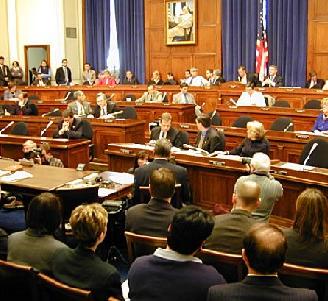Well, the sun has just about gone down on the so-called “solar session”. Today is Sine Die — the last day of the legislative session. Friday night, HB 1243 — solar’s last lifeline — was killed on the House floor.
Earlier in the week, Rep. Warren Chisum called for a strict enforcement of the House rules on germaneness. As you may recall, last week we were pretty excited around here that the solar and electric coop reform bills were tacked onto the net metering bill because they were related enough to be considered germane.
But they weren’t germane enough under STRICT enforcement of the rules, so the bill was killed.
I waited to break the news, because we still had a chance to amend SB 545 to the energy efficiency bill, SB 546… but that didn’t work out either. The House and Senate authors of the bill (Anchia and Fraser) simply could not agree over the size and scope of the solar and efficiency goals, so the bill never made it out of conference.
Its all rather depressing. Feel free to join my Tom Waits/ James McMurtry/ Leonard Cohen Pandora radio station and wallow in grief. Leave a comment and I’ll send you an invitation. But no need to worry about Citizen Sarah getting dangerously down in the dumps… I’ve left my Townes Van Zandt CDs in the car, and am headed out to the river tomorrow. Will be back to my chipper self before too long.
Plus… the session wasn’t a total loss. It just wasn’t all that we dared hope for. As of right now, here’s a list of bills that passed both bodies and will go to the Governor:
- Green fleets legislation to promote low emissions and plug-in hybrid vehicles for fleets of major State Agencies (HB 432)
- Legislation allowing cities to create financial districts to loan money for renewable power and energy efficiency (HB 1937)
- Legislation setting a ‘no regrets’ strategy for greenhouse gas reduction in the State; a study of the state’s energy use to find ways to reduce our emissions and save money at the same time (SB 184)
- A coordinated green jobs strategy including funds allocated for child care programs, vocational training initiatives, energy efficiency measures, the Weatherization Assistance Program (WAP), and/or any other recovery funds (passed as a Rider to Article 12)
- Green fee bill passed allowing governing board of public colleges and universities to institute an environmental service fee once approved by student body election
Even now there is still good legislation pending that could maybe possibly potentially pass… but I’m just not at a point where I can get my hopes up anymore. Check in later this week for an update.
For you policy nerds out there, I’m willing to get further into the nitty gritty politics of how all this went down if you’re interested. Leave a note in the comments and let us know what you’d like to hear.
 Climate change is clearly an important issue, and there is a lot that needs to be done about it at all levels of society.
Climate change is clearly an important issue, and there is a lot that needs to be done about it at all levels of society.

 6.
6. While we at Public Citizen Texas are fighting the building of new coal power plants in Texas and the surrounding states, the focus has largely been on the CO2, sulfur and other pollutants emitted into the air by the burning of coal, not to mention its inefficiency as a fuel source.
While we at Public Citizen Texas are fighting the building of new coal power plants in Texas and the surrounding states, the focus has largely been on the CO2, sulfur and other pollutants emitted into the air by the burning of coal, not to mention its inefficiency as a fuel source. Last week we saw the Waxman Markey bill go to the Energy and Commerce committee. Watching the markup process increased my interest in the role special interest money plays in the political process.
Last week we saw the Waxman Markey bill go to the Energy and Commerce committee. Watching the markup process increased my interest in the role special interest money plays in the political process. The House has been moving very slowly in an effort to kill a Voter ID bill, but it appears the logjam has been broken. Now we have to pass our key solar and clean air bills before midnight Tuesday, May 26, which is the deadline for the House to pass any bills from the Senate.
The House has been moving very slowly in an effort to kill a Voter ID bill, but it appears the logjam has been broken. Now we have to pass our key solar and clean air bills before midnight Tuesday, May 26, which is the deadline for the House to pass any bills from the Senate.

